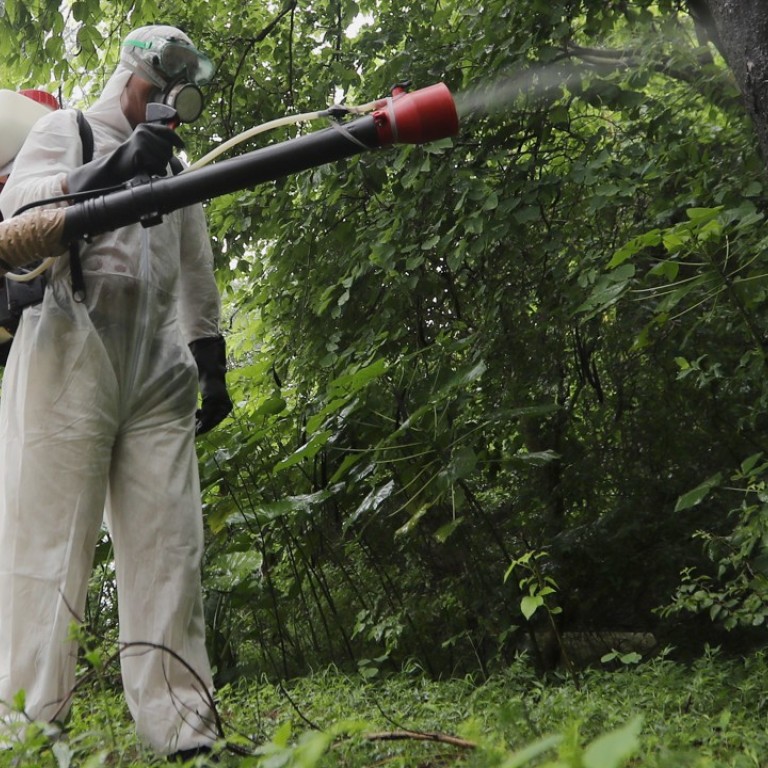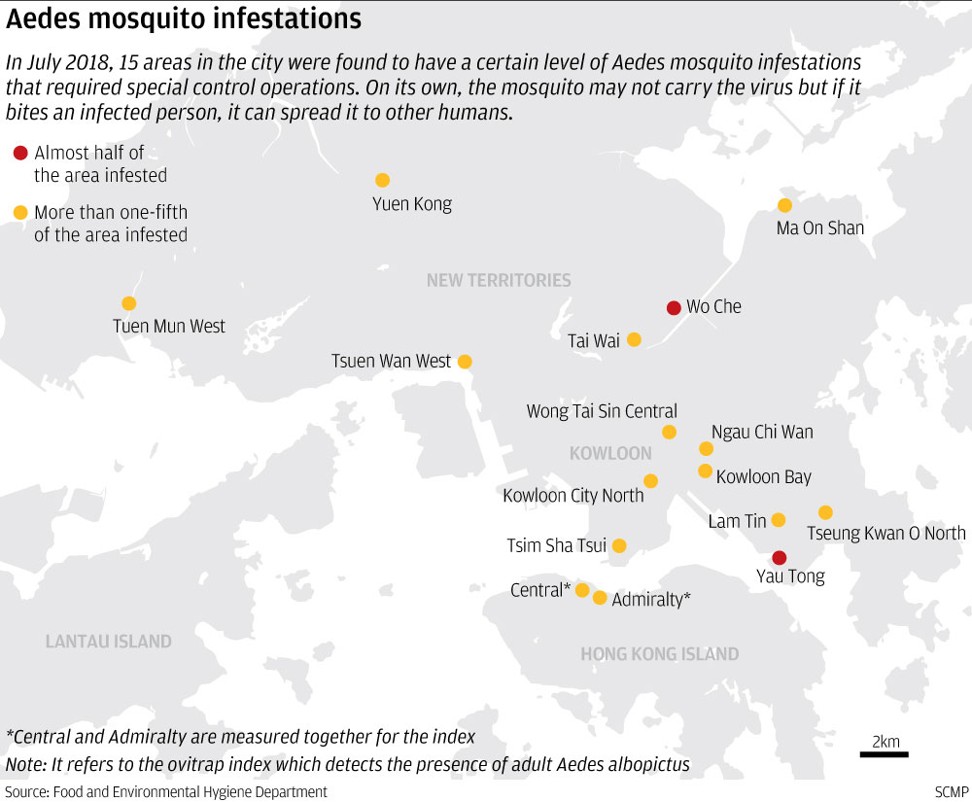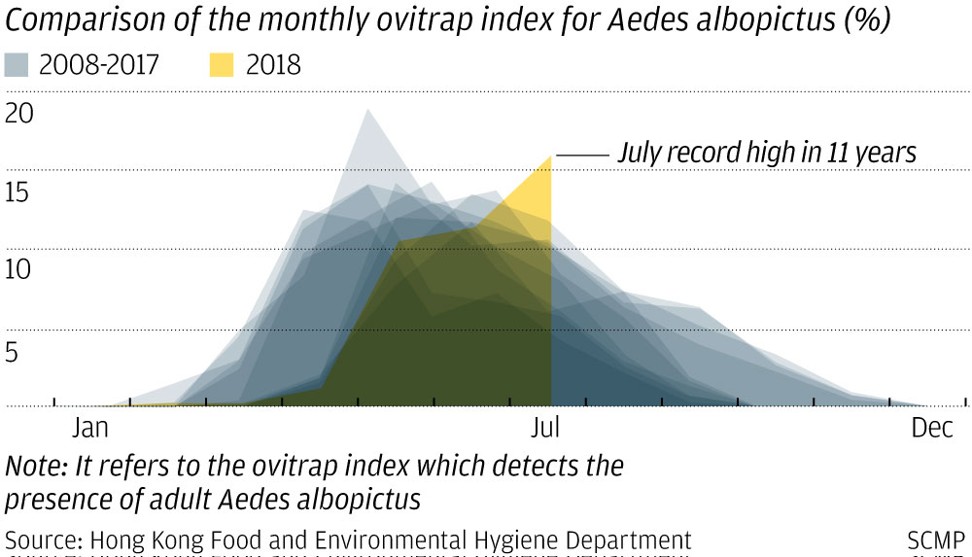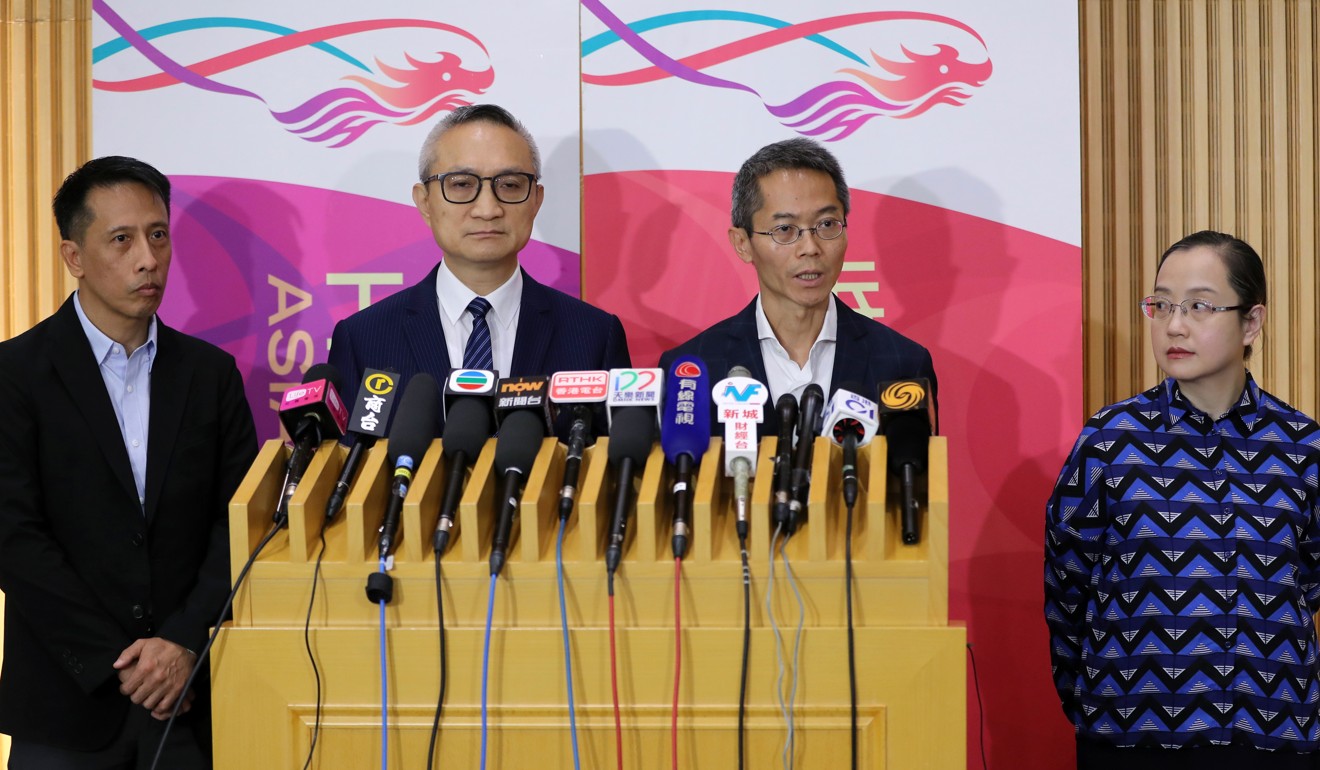
Dengue fever-carrying mosquitoes more widespread in Hong Kong as government urges community action
Adult Aedes albopictus, which carry the disease, were particularly widespread in Yau Tong, Wo Che and Tseung Kwan O North
The area of Hong Kong infested by dengue fever-spreading mosquitoes was last month bigger than during any month of July in the past 11 years, according to a widely used index, and health chiefs have sought community efforts to curb the disease.
New figures from the Food and Environmental Hygiene Department showed the monthly ovitrap index, which tracks the presence of adult Aedes albopictus, increased to 15.7 per cent last month, from 11.3 per cent in June.
With two newly confirmed cases on Tuesday night, so far there have been at least 18 local cases of dengue fever since August 14.

According to the health department, one case confirmed on Tuesday night was a 59-year-old male living alone on Cheung Chau, who was admitted to Queen Mary Hospital in a stable condition. During the incubation period, he had travelled to Shunde and Guangzhou in Guangdong. “We have informed the Guangdong and Macau health authorities to alert them to the latest situation,” the spokesman said.
Another newly confirmed case was a 43-year-old woman living in Wong Tai Sin who had visited Lion Rock Park and had a history of recent mosquito bites. She was admitted to Queen Elizabeth Hospital for treatment in August and has been in a stable condition.

Last month’s figure was the highest for July since 2008, the earliest year for which online records were available on Tuesday, beating the old record of 14.3 per cent, set in 2011. The highest monthly figure overall during the period was 19 per cent, from June 2009.
The area index in 15 areas last month exceeded the alert level of 20 per cent, meaning infestation of the mosquito exceeded a fifth of the area surveyed. Areas most seriously affected included Yau Tong and Wo Che – both over 40 per cent – and Tseung Kwan O North.
Various public bodies planned to visit the outlying island of Cheung Chau on Wednesday to promote ways of controlling the mosquito population.

That was announced on Tuesday after a meeting of the Pest Control Steering Committee, which includes representatives of different government departments. Two Cheung Chau residents had been confirmed as infected with the mosquito-borne disease.
On Tuesday, acting secretary for food and health Dr Chui Tak-yi said representatives from the Islands District Council, Cheung Chau Rural Committee, Civil Aid Service and Home Affairs Department would visit the island to teach residents tips to prevent mosquito breeding.
“There is a higher number of residents staying in private bungalow-style houses [on Cheung Chau]. Those houses have more open-air spaces and can easily have stagnant water and spots where mosquitoes can breed,” Chui – standing in while Secretary for Food and Health Professor Sophia Chan Siu-chee is on holiday – said.
He said community efforts would be essential in combating mosquitoes.
“It is not sufficient to rely on just the government’s effort. Community efforts are also very important,” Chui said. “[People from the community] will know better which parts of the district have more serious mosquito problems.”
The Hospital Authority said it would place extra orders for several thousand sets of dengue fever rapid test kits. It would also consider activating designated clinics for the infection, to relieve the burden on public accident and emergency departments, if patients with dengue fever symptoms become overwhelming.
Meanwhile, the Centre for Health Protection had not found out what exactly caused a laboratory error which led it to mistake the type of dengue fever virus afflicting a 52-year-old man from Cheung Chau, the centre’s controller Dr Wong Ka-hing said.
“According to our preliminary finding, there might be some problems with the testing procedures,” Wong said, adding that there would be a thorough investigation to find out why the error happened and recommend improvements.

